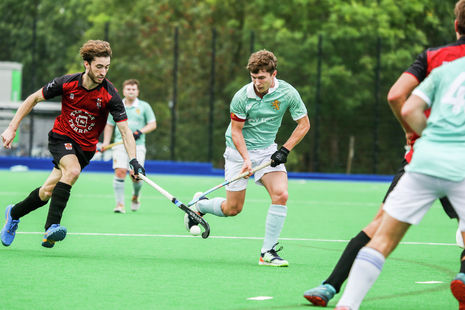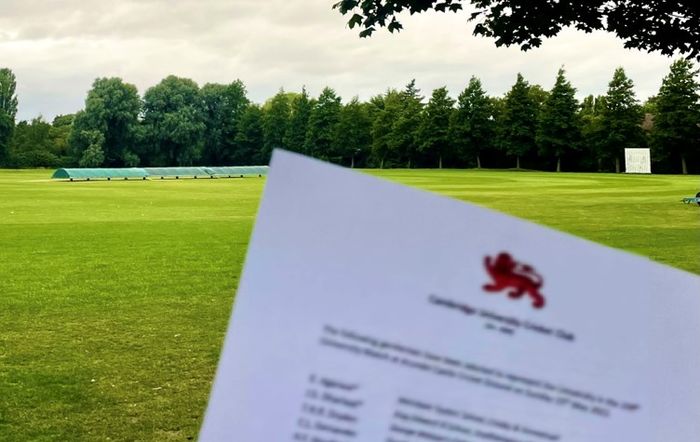Why are our Blues teams so private school-dominated?
Whether cricket, rugby, hockey or football, a disproportionate number of Cambridge’s elite athletes are privately educated. Hannah Castle asks why, and how we might bridge the gap

While Cambridge University has generally improved its access over the past few years, with an intake now made up of roughly three-quarters state-educated students compared to around half twenty years ago, its sport scene is yet to feel the effects of this improvement. The elitist legacy is plain to see on the school lists, with prestigious private schools covering our university’s top squads. Sports teams, especially Blues squads, are frequently disproportionately filled with privately educated students, and almost all first-team players have several years of experience playing before arriving at university. State school students are underrepresented in our sports teams, for several reasons which are difficult to address.
This picture is not unique to Cambridge, rather it reflects the greater structural issue of investment in sports more generally, and the unevenness of investment between state and private schools. Statistics on sports funding in secondary schools are complex, due to funding being allocated differently depending on school location and size, but underinvestment in sport in state-funded schools is well-acknowledged.
In my own school, PE was abandoned in Year 11 in favour of extra hours spent working on our ‘core subjects’ – those which the government required we pass – and the sixth form had no PE at all. After-school clubs were few and far between, and matches were even fewer. Inter-school competitions were occasional, and participation was limited. My experience of inter-school athletics was standing on the side of the track in the rain, being told I couldn’t compete because I didn’t have spikes – a necessary safety regulation, but one which instantly excluded anyone who didn’t run seriously.
State-educated students in general have fewer opportunities to develop sports ability within schools, though there are some exceptions. Therefore, students who wish to play sport more seriously are forced to play with a club; the ability to do so is also reliant on an ability to pay membership fees. Private schools on the whole invest much more in sports, with more hours and quality teaching, and many students often play at club level too.
Sports teams in Cambridge are primarily made up of people with prior experience. Therefore, players who make it to Cambridge and onto teams are likely to come from wealthier backgrounds. This does not mean those players do not deserve their places on squads, but rather that structural barriers to sport exist long before anyone makes it to university. These patterns of disproportionate access are then repeated in Cambridge.
As schools lists reveal, sports teams continue to be dominated by players from the same types of school, or even individual schools. The men’s Blues hockey team contains only one student who attended a state comprehensive school and includes three students from the same independent school. Some teams have better representation than others and interestingly, of the ones we looked at, women’s teams are in general more proportionally representative than men’s. However, of those researched, only women’s football has a proportion of state-educated students that matches the proportion in Cambridge as a whole.
Another barrier that continues structural inaccessibility is the lack of funding given by the University to sports teams. When speaking to several Blues players, a common concern was insufficient central funding. This causes problems such as expensive subs and lack of coaches, leaving it to committees and captains to run development sessions – despite the fact that these are all students, unpaid and with degrees to do. This in turn means that some clubs do not have the capacity to teach beginners. Players want to improve access to their clubs, but they are limited in what they can do.
One student said: “I think there should definitely be more options for people who want to play to a lower level (e.g. development squad) but most sports don’t have the funds to make this happen or to afford extra coaching which is a real shame.”
While several colleges do provide sports funds to help with the cost of subs and kit, these scholarships vary significantly between colleges, and therefore the disparity of who can access university sport is not necessarily addressed. Whether you’re a new player seeking to join a club, or an experienced player who just can’t afford subs, the sports scene can be difficult to navigate.
All these things sit uncomfortably when viewed in conjunction with the University’s own statements on sport. Their website expresses a great pride in the Cambridge sports scene, and says:
“Our sights are set on growing this legacy [of sporting excellence] by providing a sustainable sporting environment for students of all backgrounds and interests.”
This is yet to be realised. If the University is to be committed to enabling this vision for every student, more investment in sports teams is needed.
The question of how to improve the proportion of state-educated students in Blues teams remains a difficult one to answer. Several factors overlap and make it situationally less likely for state-educated students to be able to progress through the sports scene – while state school sport remains so underfunded it is difficult to imagine much changing. However, this doesn’t make disparity unavoidable, and it can certainly be improved. Many teams are keen to expand to new players so a greater investment in sports teams via funding and coaching would go a long way to improving access. More transparency about costs and access to clubs in general would also be a useful step. Students need to believe they could see themselves on a team so that they even bother trying at all, and this will only come about through further discussion and through expansion of opportunities.
 News / SU reluctantly registers controversial women’s soc18 December 2025
News / SU reluctantly registers controversial women’s soc18 December 2025 News / CUP announces funding scheme for under-represented academics19 December 2025
News / CUP announces funding scheme for under-represented academics19 December 2025 Features / Should I stay or should I go? Cambridge students and alumni reflect on how their memories stay with them15 December 2025
Features / Should I stay or should I go? Cambridge students and alumni reflect on how their memories stay with them15 December 2025 Fashion / The art of the formal outfit 18 December 2025
Fashion / The art of the formal outfit 18 December 2025 News / Dons warn PM about Vet School closure16 December 2025
News / Dons warn PM about Vet School closure16 December 2025









